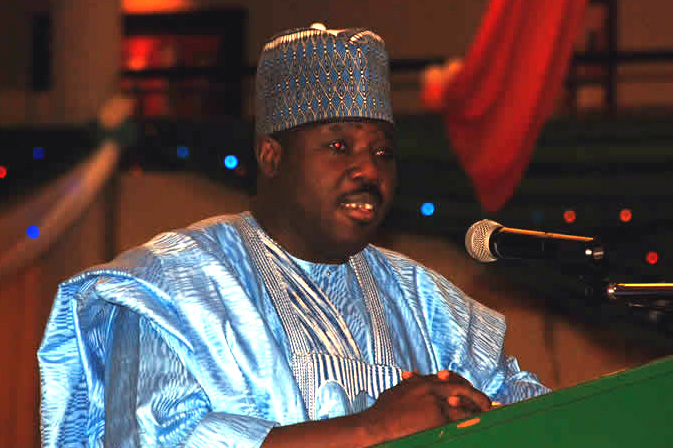Just when you think you are done with commenting on Nigerian politics and government, something brings you back to the reality and inescapability of the situation.
Of late, I have been reflecting on the reward and punishment system in Nigeria and it dawned on me that our political culture as a country will remain that of impunity, if we do not urgently accept the glaring imperatives of Consequence Management, wheregood behavior is rewarded and bad one punished to promote good governance, good leadership and good fllowership. Let me explain this briefly with the help of one of the most respected Behavioral Psychologists, American Burrhus Frederic (B.F.) Skinner who, in his Theory of Reinforcement argued that if a positive behavior is positively reinforced (reward, praise, promotion, recognition) it is likely to reoccur while a negative behavior, negatively reinforced (punishment, imprisonment, demotion, suspension, etc.) will most likely not reoccur. Even the Holy Bible did say in Proverbs 13:24 say “spare the rod and spoil the child.”
Let’s start from the fundamental social unit-the home. In every ideal home, when kids behave well (for example, when they perform extremely well in school) and their parents reward them with a token gift of a new pair of shoes (in my time) or a PS4 or IPad (as they do now), they are likely to put in the same good work if not more-even if to ensure the certainty of another token. Generally, other kids in the house will be encouraged to perform well too so they too can get a gift at the end of the following academic session. Conversely, if a child misbehaves, say he fights in school, and he gets punished when he returns home, he is unlikely to fight again. By the same token, the siblings will avoid getting into such troubles. This is a simplistic analogy of the first part of the message in this write-up.
This is the simple logic behind the various awards and prizes which come in various shapes and sizes and content in various walks of life and various parts of the world. It is also, fittingly, the reason we have various courts, rules and laws to regulate human conduct or behavior in society; law enforcement agencies to ensure strict adherence and the courts to interpret the laws and mete out justice (punishments and rewards). It is, therefore, a no brainer that government, being the first estate of the realm (ahead of the parliament, the courts and the media) must uphold this legendary principle of reward and punishment. The idea is that if good behaviors are rewarded and bad ones punished, then society will gravitate towards betterment and improvement, and development underpinned by good governance and social justice.
Advertisement
Looking at the Nigerian society, it does seem that bad behaviors, more than the good ones, are what are being rewarded. At the root of this anomaly are fame and fortune. A decade or so ago, when the notorious Advance Fee fraudsters (419 , as they are more popularly called) were the reigning champs, society regrettably tended to recognize these criminals, who should otherwise be in jail for breaching Section 419 of the Criminal Code. In the South East, these common felons were celebrated in a very conspicuously obscene manner. Traditional rulers rewarded them with chieftaincy titles and musicians sang their praises as they cruised about in their exotic cars, with their bevy of easy women-protected by heavily armed policemen, sometimes soldiers. These Chiefs (read thieves) built mansions in the towns and villages and lived extravagantly-even if everyone knew the source of their wealth was less than honorable. In the ensuing confusion, some of the boys dabbled into ritual killing to keep their cash flowing, especially with the arrival of Nuhu Ribadu on the scene, with his partly won war on economic and financial crimes.
Of course, those who sweated and suffered, for their money were (and are still being) treated with condescension, derision and disregard. The consequence (that word!) is that young people are not inspired by accomplishment powered by hard work but by affluence garnered by all means. This trend, more than anything else, contributed to the decline in enrolment figures in institutions of higher learning. Young men (and women) preferred to travel on “Easy Street” to wealth and fame rather than waste their precious time in school in pursuit of academic certificates that don’t guarantee them employment anyways much less the kind of money their role models are throwing about. You see!
To contextualize this regrettable situation in the realm of politics and leadership, it seems to me that many people in government and politics are people of doubtful integrity. At the executive and parliamentary levels, there are all sorts of men and women who are known for behaviours which are less than noble. There are some who have become stupendously rich by the mere act of being in politics and or government. We might recall the occasional stench of corruption that oozes from the political circles, with both government officials and lawmakers struggling for top position on the list of corrupt people (of course with their accomplices in the private sector). These men are given the front row in society, even in the churches. The media and blogosphere are awash with photos of such people flexing with major swag, as young people say, in the front pews of churches and social gatherings. Some are even seen kneeling down while the G.O. prays for more “blessings”.
Advertisement
We have had people indicted of one crime or another walking freely and boisterously around the corridors of power and flaunting their closeness with top government officials. Many, who we know have been proclaimed “unclean” in the past, have been appointed to top positions in government. Many who have been fingered over dubious transactions, including the Fuel Subsidy Scam, are still flying around in their private jets and generally behaving as if they “own the land”, and in the process damaging the morale or their peers and the morals of the youth. Even known felons are curiously pardoned and rehabilitated with plum positions, when they should be kept safely away from contaminating the moral fibre of society. Some of them are in the National Assembly; some are in government (state and federal); some made it to the just-concluded National Conference; some are on the boards of public institutions, including academic institutions. What are we really trying to say to young people, the future leaders?
I am personally of the opinion that the two most dangerous challenges facing Nigeria and indeed Africa are corruption and indiscipline. They are literally like the chicken and the egg and nobody is sure which predates the other but they are equally dangerous. I haven’t stopped shaking my head over the sudden good conduct of Nigerians when they arrive in foreign countries, especially Europe and the United States. The reason is simple: those countries have rules and regulations that cannot be observed in the breach. As my late father used to say, they operate on the basis of the 11th Commandment, which says “thou shall NOT get caught”, because if you are caught, you will be punished. These same well-behaved folks outside immediately change to their true colour as soon as they arrive our “no man’s land”, where there are no rules and no consequences for behaving badly.
It says so much about a culture of impunity, where people can get away with anything. Someone gets caught by LASTMA for driving and phoning and he promptly calls a top government official who gives instructions (over the phone!) to the LASTMA official to free the offender. The poor LASTMA official, without making sure who is on the other line complies lest he loses his job, which he went through hell to secure in the first place. Someone’s car, I’m told, was recently clamped at the Murtala Muhammed International Airport, Lagos (for wrong parking) and she called a Minister in Abuja, who then ordered the car released. In the latter case, she actually wanted to demonstrate her connection with the high and mighty in power and not necessarily to avoid paying a mere N20, 000 fine (which she could easily afford). Imagine leaving the parking lot at Heathrow Airport, in the United Kingdom, without paying the fees or parking wrongly!
So consequence management: we must begin to make examples of people in government, who behave badly. Starting from the President to the least government official, nobody should indulge his friends or relatives or classmates who deserve to be punished for bad behavior. We must not appoint reputedly bad people into public positions of trust, because that naturally sends a wrong message to the people, especially young people. Also, we need to be decisive in our pursuit of criminal cases against economic saboteurs. Allowing renowned criminals to manipulate the cause of justice and even wining and dining with them makes a mockery of any claims to a war against corruption. If the same people that are accused of stealing public funds or aiding and abetting the stealing of public funds are still seen pounding the corridors of power and donating fat sums (sometimes facetious donations) then we are not being sincere about fighting corruption.
Advertisement
Outside of government, the churches and indeed the various religious organizations should live up to their customary standing as moral emblems while religious leaders become moral icons. To a large extent, some of the so called religious leaders are living more like movie stars and musicians than men and women of God. Their strong focus on prosperity rather than moral uprightness has tended to cast a veil of doubt on their real intentions and sincerity of their evangelism. Of course, it is most unhelpful if society continues to adulate men and women whose sources of wealth are of doubtful integrity. Awarding frivolous titles to such people completely undermines the ethics of social conduct which underpin co-existence even in the simplest of communities.
Nigeria is indeed currently wallowing in a quagmire created by a conspiracy of lack of shame, paucity of role models and scant regard to consequence management. All the bad and ugly things happening, from official corruption, indiscipline, armed robbery, kidnapping and terrorism are by-products of the aforementioned. We must take our society back before we nurse any hopes of improvement. A society driven by crass materialism and the quest for power and influence, which are often deployed negatively, will never escape from the shackles of underdevelopment, crime and criminality. There are sometimes I ask what the likes of Mike Omeri-led National Orientation Agency (NOA) and Ibrahim Lamorde of the EFCC are doing, with their jobs so clearly cut out for them. I hope I am not the only one asking this question and basically getting no answers.
*Oparah writes from Lagos.
Advertisement






